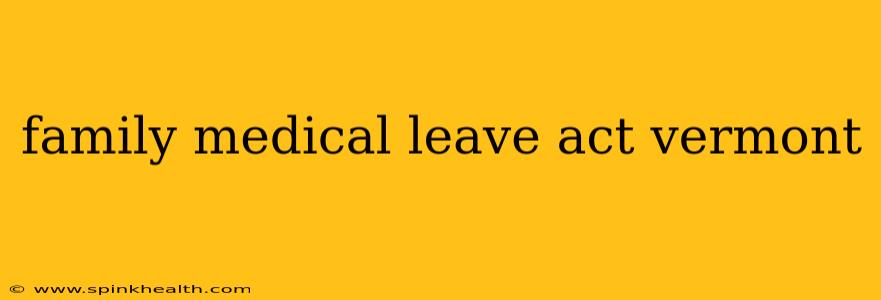The birth of a child, a serious illness, or the need to care for a family member – life's unexpected turns can often disrupt our work-life balance. In Vermont, as in the rest of the United States, the Family and Medical Leave Act (FMLA) provides crucial protection for employees facing such situations. But understanding the nuances of FMLA in Vermont can be challenging. This guide aims to unravel the complexities, offering a clear and comprehensive overview.
Imagine Sarah, a dedicated Vermont employee working for a medium-sized company. When her mother falls seriously ill, Sarah needs time off to provide care. Knowing the FMLA exists is helpful, but understanding how it applies to her situation requires a closer look. This is where this guide comes in – let’s delve into the specifics.
What is the Family and Medical Leave Act (FMLA)?
The Family and Medical Leave Act is a federal law that allows eligible employees to take unpaid, job-protected leave for specified family and medical reasons with continuation of group health insurance coverage under the same terms and conditions as if the employee had not taken leave. It’s a safety net, ensuring employees can attend to critical family matters without fear of job loss. However, it's important to note that FMLA is not a paid leave program.
Who is Eligible for FMLA Leave in Vermont?
Eligibility for FMLA leave hinges on several factors. You must:
- Work for a covered employer: This generally means an employer who employs 50 or more employees within a 75-mile radius.
- Have worked for the employer for at least 12 months: This is a continuous 12-month period, not necessarily consecutive.
- Have worked at least 1,250 hours during the 12 months preceding the leave request: This signifies a substantial level of commitment to the employer.
Meeting these criteria doesn't automatically guarantee FMLA leave; you must also have a qualifying reason for the leave.
Qualifying Reasons for FMLA Leave in Vermont
The FMLA covers several qualifying reasons, including:
- The birth and care of a newborn child: This includes bonding time with the child.
- The placement of a child with the employee for adoption or foster care: This allows time to adjust to the new family dynamic.
- To care for a spouse, child, or parent with a serious health condition: This covers situations requiring significant caregiving responsibilities.
- The employee's own serious health condition that makes the employee unable to perform the essential functions of their job: This includes illnesses requiring medical attention and recovery time.
How Long Can I Take FMLA Leave in Vermont?
Generally, FMLA allows for up to 12 weeks of unpaid, job-protected leave within a 12-month period. However, specific circumstances might influence the duration. It's crucial to discuss your leave needs with your employer and HR department to ensure you understand the available options and any potential limitations.
What are my Rights and Responsibilities under FMLA?
Employee Rights: Under FMLA, you have the right to:
- Take unpaid leave: Your job is protected while you are on leave.
- Maintain your health insurance coverage: Your employer must continue to provide health insurance coverage as if you were still working.
- Return to your same or an equivalent job: Upon your return, your employer must reinstate you to your previous position or a comparable one with equivalent pay, benefits, and other terms and conditions.
Employee Responsibilities: You are responsible for:
- Providing sufficient notice: You should notify your employer as soon as possible of your need for leave.
- Providing medical certification: Your employer may request medical certification from your healthcare provider to support your request.
- Keeping your employer informed: While on leave, you might need to periodically update your employer on your progress.
What if my employer doesn't comply with FMLA?
If you believe your employer is violating your FMLA rights, you can file a complaint with the U.S. Department of Labor's Wage and Hour Division. They can investigate your claim and take appropriate action.
Does Vermont have any state laws supplementing FMLA?
While Vermont doesn't have a state-level law directly supplementing FMLA, it's crucial to understand Vermont's general employment laws and regulations which offer additional protections. Always consult with an employment law expert to ensure you fully understand your rights and responsibilities.
How do I apply for FMLA leave in Vermont?
The process typically involves notifying your employer and providing necessary documentation, such as a medical certification from your doctor. It's essential to follow your employer's specific policies and procedures for requesting FMLA leave. Remember to maintain open communication with your HR department to ensure a smooth process.
This guide serves as a starting point for understanding FMLA in Vermont. However, individual circumstances can vary significantly, making consultation with legal professionals advisable. Don’t hesitate to seek expert advice for personalized guidance tailored to your specific situation. Navigating FMLA can be complex, but understanding your rights can provide peace of mind during challenging times.

